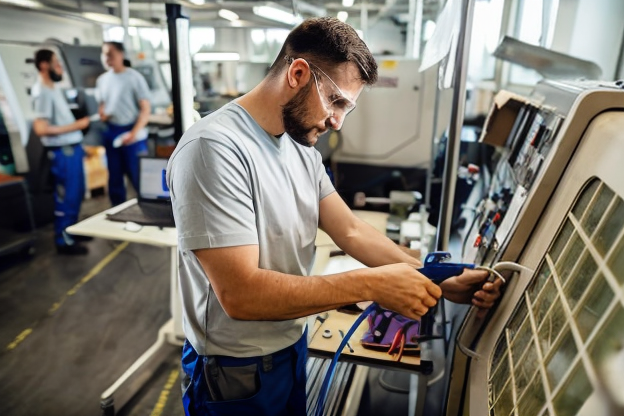Advancements in Complex Process Machining: The Future of Precision Manufacturing+ View more
The Role of CAD/CAM in Modern Machining
CAD software has evolved to become more intuitive, allowing for the intricate design of parts that must meet demanding specifications. CAM systems, on the other hand, have advanced to interpret these designs into precise machining instructions. This seamless transition from digital blueprints to physical components is the cornerstone of modern complex process machining. As these technologies advance, they pave the way for the development of new materials and the intricate design of parts that can be produced with greater efficiency and lower costs. The result is a more rapid turnaround of high-precision parts, essential for maintaining competitiveness in a dynamic market.
Innovations in CNC Machining
At the heart of these advancements lie CNC machines, which have undergone significant improvements in terms of speed, accuracy, and versatility. These machines are now capable of performing highly complex processes with minimal human intervention, reducing the likelihood of human error and increasing the consistency of the final product. Innovations such as multi-axis machining and real-time monitoring have further enhanced the capabilities of CNC machines, allowing manufacturers to produce parts with intricate geometries and tight tolerances.
Implications for Key Industries
The medical industry, for instance, benefits immensely from these technological advancements. Complex process machining enables the production of bespoke prosthetics, orthopedic implants, and surgical tools that conform precisely to individual patient anatomy. In the electronics sector, the miniaturization trend demands the production of small yet complex components, which is made possible through the advancements in machining technologies. The aerospace industry, known for its stringent quality requirements, relies on the precision of complex process machining to produce reliable and safe aircraft components.
The Future of Complex Process Machining
The future of complex process machining looks promising with continuous investment in research and development. The adoption of Industry 4.0 practices is expected to further enhance the capabilities of CNC machines through the integration of smart sensors, artificial intelligence, and advanced analytics. This will not only improve the efficiency and precision of machining processes but also enable predictive maintenance, reducing downtime and operational costs. As these technologies advance, they will open up new possibilities for the design and production of complex parts, further pushing the boundaries of what is considered achievable in precision manufacturing.
In conclusion, the ongoing innovations in CAD, CAM, and CNC technologies are setting new standards in complex process machining. As these advancements continue to unfold, they will further empower industries that rely on high-precision components, fostering growth, and driving innovation. The convergence of design, manufacturing, and technology has indeed marked the beginning of a new era in precision manufacturing, one that promises greater efficiency, accuracy, and reliability across various critical industries.

